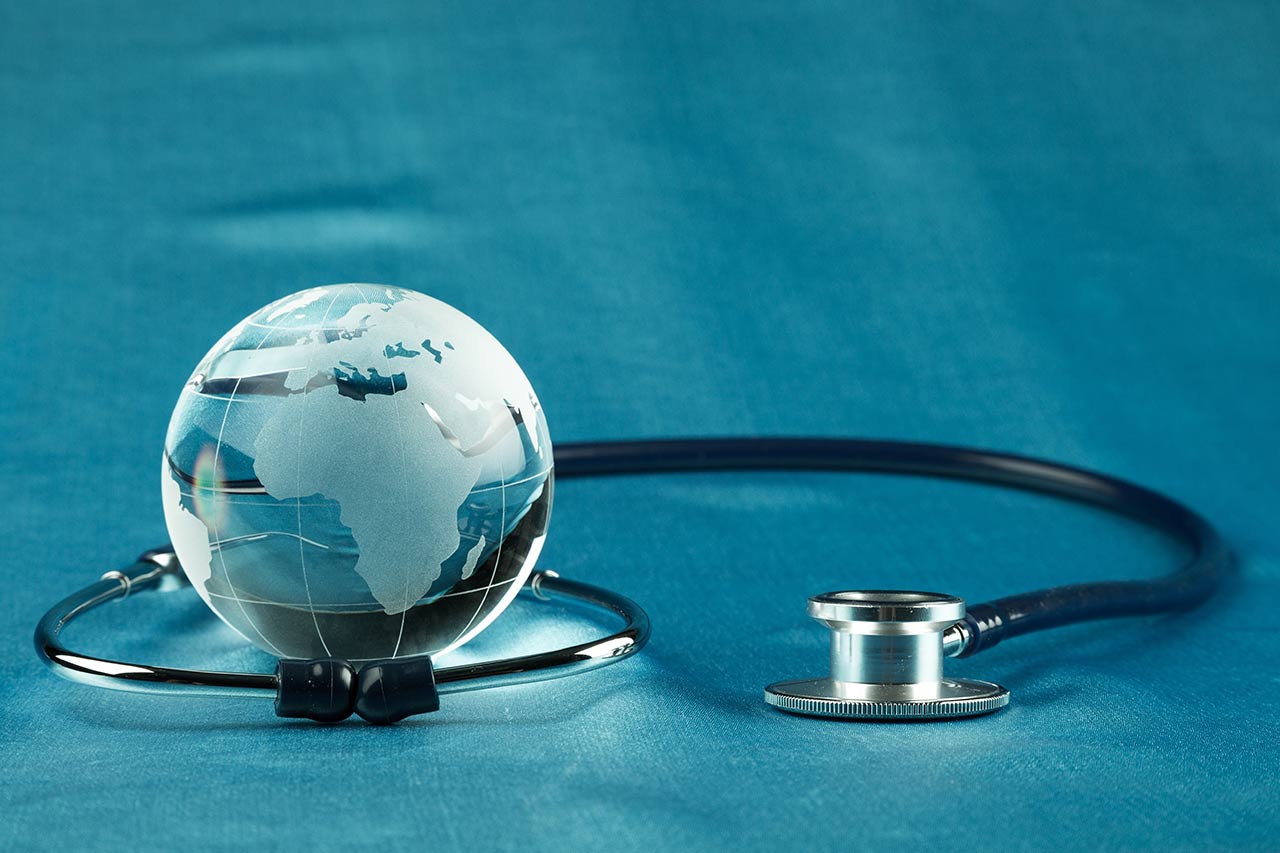Healthcare
Alcimed Position paper – DIGITAL HEALTH IN TIMES OF PANDEMICS
Alcimed Position Paper - DIGITAL HEALTH IN TIMES OF PANDEMICS: How will the Covid-19 crisis help build a new place for digital health?

The global health has passed through significant improvements over the years. Nevertheless, 83% of world’s population lives in low- and middle-income countries, of which, many still face challenges related to their healthcare systems and access to medicines. The support and commitment of the pharmaceutical industry are important to change this scenario, and their corporate social responsibility should go beyond philanthropy, with projects and strategies that are sustainable in the long term. Today, Alcimed invites you to explore examples of initiatives taken by the pharmaceutical industry which have been contributing to this matter.
This type of initiative helps to reduce the inequalities in global healthcare, empowering sustainable development in low- and middle-income countries.
Public-private partnerships (PPPs) are agreements involving governments, civil societies, NGOs, and private players, working together to bring benefits to the population. Within the pharmaceutical industry, this type of partnerships usually aims to improve the access to healthcare systems by optimizing the use of available knowledge and resources.
Many public-private partnerships aim to develop activities that mitigate challenges in low- and middle-income countries, for instance the Health Worker Training Initiative. This partnership is led by Last Mile Health and Living Goods – two NGOs with the aim of improving access and the quality of essential healthcare in African countries -, in collaboration with private companies and organizations such as Pfizer, GSK, Johnson & Johnson, Lilly, Novartis, and the Bill & Melinda Gates Foundation. The three-year investment will provide training and equip health care staff to enhance services of communities in some African countries. This type of initiative helps to reduce the inequalities in global healthcare, empowering sustainable development in these countries.
The research and development of products needed specifically in low- and middle-income countries are essential to reduce the healthcare disparities in the world. According to the World Health Organization, 19 Neglected Tropical Diseases (NTDs) still need to be targeted and controlled, such as lymphatic filariasis, onchocerciasis (river blindness), trachoma, soil-transmitted helminthiases (SHT), and schistosomiasis. To win this fight, the pharmaceutical industry has been investing to find new treatments for these types of diseases. Currently, 15 different pharmaceutical companies are conducting R&D projects on 14 types of NTDs, as Sanofi with the development of Fexinidazole to address sleeping sickness, Takeda investing in the Denvax, a live-attenuated tetravalent dengue vaccine, and Bayer fighting against Chagas disease in children with Lampit® (IFPMA, 2020).
The support and promotion of science, technology, and innovation are essential for the development of societies, and pharmaceutical companies can play a key role in this area. For instance, in 2018, the pharmaceutical industry was the 2nd sector that most invested in innovation in Brazil, according to qualitative and quantitative indicators, it was the sector that adopted the best innovation management practices, with the largest level of investment of net income in local Research and Development (R&D) activities. The sectors’ classification was based on five pillars: intention to innovate, effort to achieve innovation, results obtained, market evaluation and local knowledge generation, where companies such as Novartis and Roche were among the top 5 in the ranking (Valor inovacao, 2019).
Moreover, pharmaceutical companies have established specific types of public-private partnerships (PPPs) aiming to develop scientific collaboration in developing countries, like GSK with ‘’Trust in Science’’. Thanks to the funding provided by the program, top local institutions were able to develop patient-focused research, addressing the treatment of relevant diseases to meet local community needs. This program was first launched in Brazil and Argentina in 2011, and was after extended to Uganda, Kenya, and Tanzania between 2013-2015, and was introduced in India in 2019.
Actions to promote healthcare systems and access to medicines in developing nations are an important tool to reduce disparities and empower sustainable development. Pharmaceutical companies have a key role to play and have been investing in sustainable responses, such as public-private partnerships to reduce inequalities in global healthcare, R&D on needed products to help with treatment and prevention of local diseases, and investment in local innovation and scientific collaborations to empower a sustainable development in these countries. At Alcimed, we are convinced that these actions are key to improve people’s health and achieve social welfare in low- and middle-income countries.
About the author
Jessica, Consultant in Alcimed’s Healthcare team in Belgium
Do you have an exploration project?
Our explorers are ready to discuss it with you